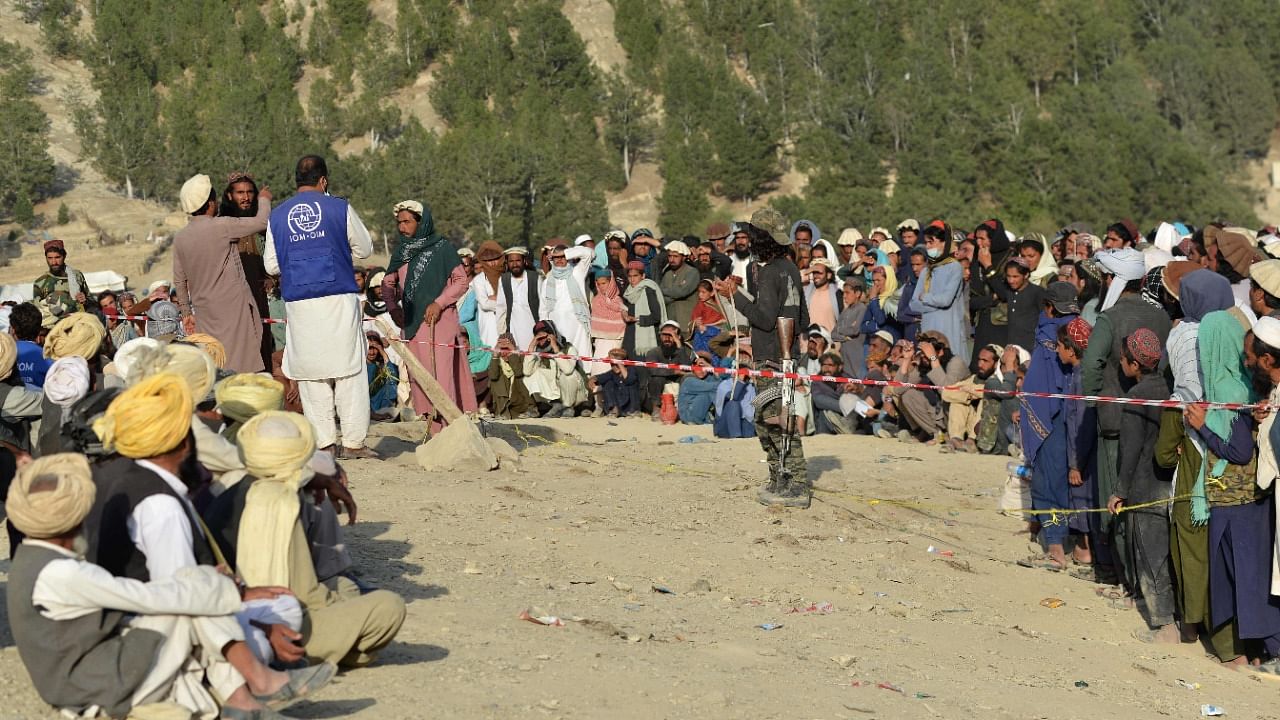
Thousands of Afghan religious scholars and tribal elders gathered in the capital Thursday for a men-only meeting the Taliban hope will rubber-stamp their hardline Islamic rule.
Officials have provided scant details of the "jirga" -- a traditional gathering of influential people that settles differences by consensus -- and the media is also barred from attending.
It comes a week after a powerful earthquake struck the east of the country killing over 1,000 people and leaving tens of thousands homeless.
Even before the quake, the Taliban were struggling to administer a country that had long been in the grip of economic malaise, utterly dependent on foreign aid that dried up with the overthrow of the Western-backed government in August.
Officials from the United States were due to meet senior Taliban leaders in Qatar later Thursday for talks on unlocking some of Afghanistan's reserves, with Washington seeking ways to ensure the money goes to help the population rather than the Islamist group.
A Taliban source told AFP this week that criticism of the regime would be allowed at the three-day jirga, and thorny issues such as the education of girls -- which has divided opinion in the movement -- would be discussed.
Also Read | Message to Taliban must be firm
But women would not be allowed to attend, with deputy Prime Minister Abdul Salam Hanafi telling state broadcaster RTA on Wednesday there was no need because they would be represented by male relatives.
"The women are our mothers and sisters... we respect them a lot," he said.
"When their sons are in the gathering it means they are also involved."
Since the Taliban's return, secondary school girls have been barred from education while women were dismissed from government jobs, forbidden from travelling alone and ordered to dress in clothing that covers everything but their faces.
They have also outlawed playing non-religious music, banned the portrayal of human figures in advertising, ordered TV channels to stop showing movies and soap operas featuring uncovered women, and told men they should dress in traditional outfits and grow their beards.
A letter from the prime minister's office seen by AFP said each of Afghanistan's more than 400 districts should provide three delegates to the meeting.
Cities, religious groups and other organisations would also be sending representatives, bringing the gathering to over 3,000 -- the biggest leadership collective since the Taliban returned to power.
Afghan media is abuzz with speculation that Taliban supreme leader Hibatullah Akhundzada -- who has not been filmed or photographed in public since the group returned to power -- may attend the gathering.
Only a handful of unverified audio recordings of his speeches have been released since August from Kandahar, the Taliban's birthplace and spiritual heart.
The Taliban have thrown a dense security blanket over the capital, with roads leading to the jirga venue blocked, or bristling with checkpoints.